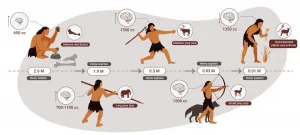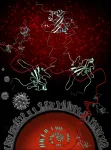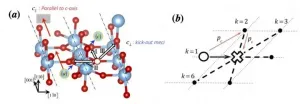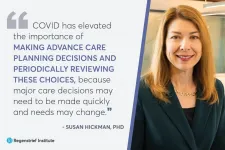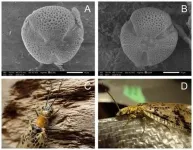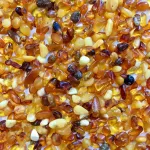Scientists scour genes of 53,000+ people to better battle dangerous diseases
2021-04-05
(Press-News.org) A new analysis of the entire genetic makeup of more than 53,000 people offers a bonanza of valuable insights into heart, lung, blood and sleep disorders, paving the way for new and better ways to treat and prevent some of the most common causes of disability and death.
The analysis from the Trans-Omics for Precision Medicine (TOPMed) program examines the complete genomes of 53,831 people of diverse backgrounds on different continents. Most are from minority groups, which have been historically underrepresented in genetic studies. The increased representation should translate into better understanding of how heart, lung, blood and sleep disorders affect minorities and should help reduce longstanding health disparities.
"The Human Genome Project has generated a lot of promises and opportunities for applying genomics to precision medicine, and the TOPMed program is a major step in this direction," said Stephen S. Rich, PhD, a genetics researcher at the University of Virginia School of Medicine who helped lead the project. "An important feature of TOPMed is not only publishing the genomic data on 53,000 people with massive amounts of data related to heart, lung, blood and sleep disorders but also the great diversity of the participants who donated their blood and data."
Historic Genome Analysis
The groundbreaking work identified 400 million genetic variants, of which more than 78% had never been described. Nearly 97% were extremely rare, occurring in less than 1% of people. This sheds light on both how genes mutate and on human evolution itself, the researchers say.
Of the groups studied, people of African descent had the greatest genetic variability, the researchers found. The resulting data is the best ever produced on people of African ancestry, the scientists report in the prestigious journal Nature.
The work also offers important new insights into certain gene variants that can reduce people's ability to benefit from prescription drugs. This can vary by race and ethnic group.
"TOPMed is an important and historic effort to include under-represented minority participants in genetic studies," said Rich, who served on the project's Executive Committee and chaired the Steering Committee. "The work of TOPMed should translate not only into better scientific knowledge but increase diversity at all levels - scientists, trainees, participants - in work to extend personalized medicine for everyone."
Rich was joined in the effort by UVA's Ani Manichaikul, PhD; Joe Mychaleckyj, DPhil; and Aakrosh Ratan, PhD. All four are part of both the Center for Public Health Genomics and UVA's Department of Public Health Sciences.
INFORMATION:
About TOPMed
The UVA researchers were part of an international team of more than 180 leading genomics experts analyzing the vast quantities of data from TOPMed, a project of the National Institutes of Health's National Heart, Lung and Blood Institute.
The work, though, is really just the beginning. The scientists hope their efforts will ultimately yield important insights about the "genetic architecture" of the heart, lung and blood systems and lead to new ways to prevent, treat and cure the worst maladies that plague those systems.
In particular, they hope their findings will help advance precision medicine tailored specifically to the needs of each individual patient.
"The current TOPMed publication, while reporting on 53,000 participants, is really only the beginning," Rich said. "TOPMed has already conducted whole genome sequencing on over 140,000 ancestrally diverse individuals, and is generating greater insight into the ways genomics can address problems related to human health and disease."
To keep up with the latest medical research news from UVA, subscribe to the Making of Medicine blog at http://makingofmedicine.virginia.edu.
[Attachments] See images for this press release:

ELSE PRESS RELEASES FROM THIS DATE:
2021-04-05
Researchers at Tel Aviv University were able to reconstruct the nutrition of stone age humans. In a paper published in the Yearbook of the American Physical Anthropology Association, Dr. Miki Ben-Dor and Prof. Ran Barkai of the Jacob M. Alkov Department of Archaeology at Tel Aviv University, together with Raphael Sirtoli of Portugal, show that humans were an apex predator for about two million years. Only the extinction of larger animals (megafauna) in various parts of the world, and the decline of animal food sources toward the end of the stone age, led humans to gradually increase the vegetable element in their nutrition, until finally they had no choice but to domesticate both plants and animals - and became farmers.
"So far, attempts to reconstruct the diet of stone-age humans ...
2021-04-05
WASHINGTON, April 5, 2021 -- Forever chemicals are known for being water-, heat- and oil-resistant, which makes them useful in everything from rain jackets to firefighting foams. But the chemistry that makes them so useful also makes them stick around in the environment and in us -- and that could be a bad thing: https://youtu.be/tqKEG5LxPiY.
INFORMATION:
Reactions is a video series produced by the American Chemical Society and PBS Digital Studios. Subscribe to Reactions at http://bit.ly/ACSReactions and follow us on Twitter @ACSReactions.
The American Chemical Society (ACS) is a nonprofit organization chartered by the U.S. Congress. ACS' mission is to advance the broader ...
2021-04-05
CORVALLIS, Ore. - Researchers in the Oregon State University College of Science have taken a key step toward new drugs and vaccines for combating COVID-19 with a deep dive into one protein's interactions with SARS-CoV-2 genetic material.
The virus' nucleocapsid protein, or N protein, is a prime target for disease-fighting interventions because of the critical jobs it performs for the novel coronavirus' infection cycle and because it mutates at a comparatively slow pace. Drugs and vaccines built around the work of the N protein carry the potential to be highly effective and for longer periods of time - i.e., less susceptible to resistance.
Among the SARS-CoV-2 proteins, ...
2021-04-05
Ishikawa, Japan - One of the most important classes of problems that all scientists and mathematicians aspire to solve, due to their relevance in both science and real life, are optimization problems. From esoteric computer science puzzles to the more realistic problems of vehicle routing, investment portfolio design, and digital marketing--at the heart of it all lies an optimization problem that needs to be solved.
An appealing technique often used in solving such problems is the technique of "quantum annealing", a framework that tackles optimization problems by using "quantum tunneling"--a quantum physical phenomenon--to pick out an optimum solution out of several candidate solutions. ...
2021-04-05
INDIANAPOLIS -- The high incidence of COVID-19 and resulting sudden changes in the health of many long-stay nursing home residents across the country have amplified the importance of advance care planning and the need for periodic review of the process, especially as widespread vaccination changes the calculus of the disease.
Two new studies from Indiana University and Regenstrief Institute focus on POLST, a medical order form widely used in nursing homes that documents what life-sustaining treatments a person prefers to receive or not receive, such as hospitalization or comfort-focused care. The studies, published online ...
2021-04-05
Researchers from Kumamoto University (Japan) have found that adult nocturnal fishflies (Neochauliodes amamioshimanus), which are typically aquatic insects, feed on pollen at night. They also present circumstantial evidence suggesting that this species not only forages in flowers, but is also a supplementary pollinator. Their work sheds light on the terrestrial life of adult fishflies, which has been a mystery until now.
Megaloptera is a small taxon (about 400 species worldwide) consisting of the families Sialidae (alderflies) and Corydalidae (dobsonflies and fishflies), and is considered to be one of the oldest groups of insects that undergo complete metamorphosis. The biology of the fishfly's aquatic larvae, which were sometimes used as folk remedies in Japan, is relatively well understood. ...
2021-04-05
WASHINGTON, April 5, 2021 -- As the world awaits the upcoming Olympic games, a new method for detecting doping compounds in urine samples could level the playing field for those trying to keep athletics clean. Today, scientists report an approach using ion mobility-mass spectrometry to help regulatory agencies detect existing dopants and future "designer" compounds.
The researchers will present their results today at the spring meeting of the American Chemical Society (ACS). ACS Spring 2021 is being held online April 5-30. Live sessions will be hosted April 5-16, and on-demand and networking content will continue through April 30. The meeting features nearly 9,000 presentations ...
2021-04-05
WASHINGTON, April 5, 2021 -- Polyurethanes, a type of plastic, are nearly everywhere -- in shoes, clothes, refrigerators and construction materials. But these highly versatile materials can have a major downside. Derived from crude oil, toxic to synthesize, and slow to break down, conventional polyurethanes are not environmentally friendly. Today, researchers discuss devising what they say should be a safer, biodegradable alternative derived from fish waste -- heads, bones, skin and guts -- that would otherwise likely be discarded.
The researchers will present their results today at the spring meeting of the American Chemical Society (ACS). ACS Spring 2021 is being held online April 5-30. Live sessions will be hosted ...
2021-04-05
WASHINGTON, April 5, 2021 -- For centuries, people in Baltic nations have used ancient amber for medicinal purposes. Even today, infants are given amber necklaces that they chew to relieve teething pain, and people put pulverized amber in elixirs and ointments for its purported anti-inflammatory and anti-infective properties. Now, scientists have pinpointed compounds that help explain Baltic amber's therapeutic effects and that could lead to new medicines to combat antibiotic-resistant infections.
The researchers will present their results today at the spring meeting of the American Chemical Society (ACS). ACS Spring 2021 is being held online ...
2021-04-05
DALLAS, April 5, 2021 -- When people with human immunodeficiency virus (HIV) develop high blood pressure, the type of medication chosen for their initial treatment may influence their risk of heart disease, stroke and heart failure, according to new research published today in Hypertension, an American Heart Association journal.
With current anti-retroviral medications, people with HIV are able to live longer. However, people with HIV receiving anti-retroviral therapy (ART) are more likely to develop high blood pressure (hypertension) and hypertension-related heart problems than people who do not have the virus. The current study is the first to examine how the choice of blood pressure medications influences the long-term risk of heart disease, stroke and ...
LAST 30 PRESS RELEASES:
[Press-News.org] Scientists scour genes of 53,000+ people to better battle dangerous diseases

